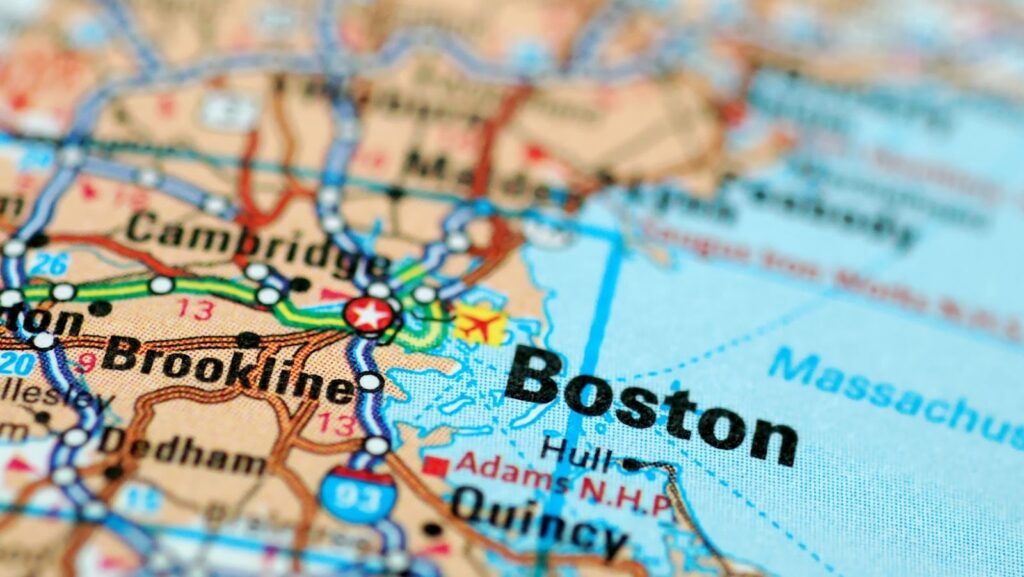Toast, a restaurant technology platform, is a remarkable success story. From its humble beginnings, it has defied the norms of Silicon Valley by surviving a ‘suicide mission’ to become a $30 billion business. Despite the odds being heavily stacked against them, Toast managed to thrive, thanks to the resilience of its leaders and its relentless focus on customers.
Let’s take a closer look at how Toast achieved such success and why it could be a blueprint for other startups.
Definition of Toast
Toast is a leading restaurant point-of-sale platform provider in the United States, founded in 2011 and headquartered in Boston. The company enables restaurants of all sizes to customise an integrated software and hardware solution for their specific needs. In addition to providing cost-effective products and services, Toast strives to revolutionise the industry by offering an intuitive, easy-to-use system that can meet the complexities of the fast-paced restaurant industry.
Toast’s cloud-based platform provides real time data insights from diner orders to deep analytics on staff performance that allows restaurateurs to make more informed decisions while simultaneously providing enhanced customer experiences. In addition, the company offers solutions that provide features such as order management systems, kitchen production tools, guest payment capabilities, floor mapping tools, inventory management systems, and back-of-house operations support such as vendor integration and financial analytics.
Overview of the company’s history
Toast, a Boston-based restaurant technology company, has become one of history’s largest tech success stories. Founded in 2012 by ex-Google employees Steve Fredette and Jonathan Grimm, Toast grew from a small startup to one of the most valued restaurant technology companies worldwide.
Today, Toast’s product portfolio includes a powerful cloud-based point of sale (POS) platform that enables restaurants to seamlessly manage their operations across front-of-house and back-of-house functions. This highly intuitive solution helps manage employee scheduling and business intelligence analysis, and it also processes mobile merchant payments and digital ordering through online applications such as Grubhub or DoorDash. The Toast platform is currently being used by more than 100,000 restaurants nationwide with over 200 million orders annually.

In recent years, Toast’s success has skyrocketed as the need for cloud POS solutions for restaurants has grown exponentially due to the Covid-19 pandemic—in 2020 the company saw its valuation rising from $2 billion to an astounding $30 billion. Additionally, with its strategic acquisitions of restaurant technology providers such as Punchh, Foodenda Inc., Outbound Technology LLC., Tock Technologies Inc., Ordermark and Chowbotics Inc., Toast leveraged new technology and analytics that provide customers with robust insights into their data to optimise operations within their business models—ultimately driving up business performance.
Defying Silicon Valley
Toast, an Android restaurant software company, has defied the norms of Silicon Valley to build a $30 billion business, surviving what founder Steve Fredette called a ‘suicide mission.’
This success story highlights the importance of making bold decisions to go against the grain and stand out from the crowd. So let’s take a closer look at how Toast achieved its success.
Toast’s decision to remain private
One of the most significant decisions Toast made was to forgo the popular Silicon Valley methodology of rapid growth over profits and remain independent. Instead, the founders believed that focusing on building a lasting and successful business meant staying private and investing in long-term strategies. As a result, Toast is currently worth an estimated $30 billion.
Going against industry standards meant setting custom hiring and firing practices. Employees are encouraged to take on big responsibilities immediately, learning through trial and error. The company also invests heavily in employee development to ensure morale remains high despite long days at work. Teams have regular one-on-one check-ins and vacations together while communicating openly with management regarding project progress or career goals.
The founders also create transparency by engaging with employees directly, hosting quarterly town halls to identify areas of improvement while acting as mentors to those in need. This approach has enabled them to stay afloat during volatile times like the coronavirus pandemic where other companies struggled immensely. In addition, staying private allows Toast to remain agile by navigating threats posed by competitive forces in the market more effectively than its public peers, who must answer to shareholders’ demands for rapid growth each quarter with minimal investment into employee culture or customer service quality control — two critical factors that ultimately define a company’s success or failure rate over time.
Toast’s decision to focus on small businesses
Toast decided to focus on small business customers, offering an all-in-one platform that handles point of sale, customer loyalty programs and more—things larger restaurants already had in place. Through interviews with customer feedback and industry experience, Toast’s executives concluded that small businesses were underserved.
They became passionate about providing their customer base with a streamlined but comprehensive workflow system. With features such as simple setup, cloud-based infrastructure and inventory management, Toast quickly gained traction and demand from small businesses across the United States.
Small businesses may have fewer resources than larger operations, but their need for efficiency is even greater—and that’s what Toast recognized as a major opportunity. Unfortunately, small businesses often can’t afford the time or money to invest in technology. By catering to this overlooked market with an easy-to-use platform that did not require extensive training or customization, Toast made it possible for them to offer top-notch service—without any large upfront costs.

Understanding the landscape and customising their product around a marketing base was key to toast’s success. As a result, Toast was able to provide intuitive yet comprehensive services while still maintaining its commitment to customer service excellence and product innovation – both of which have allowed them to become one of today’s hottest tech companies valued at over 30 billion dollars.
Surviving a ‘Suicide Mission’
Toast defied Silicon Valley norms and survived a ‘suicide mission’ to build a $30 billion business.
In this article, we will look at exactly how Toast achieved such success. We will also discuss the risks they took and the strategies they employed to get from their humble beginnings to the billion-dollar business they are today.
Toast’s decision to focus on restaurant technology
In an era where Silicon Valley companies are encouraged to focus on capturing the attention and devotion of consumers, Toast took a different approach and developed restaurant technology exclusively. This decision was key in allowing the company to become a leading point-of-sales (POS) system used by restaurants of all sizes.
Building technology designed primarily for utility allowed the team at Toast to focus on crafting tailored solutions that precisely met the needs of restaurant owners. During this process, they developed a greater understanding and appreciation for how restaurants interact with customers, handle staffing, collect payments and manage other operations. This attention to detail is embedded in their products, which has led to their explosive growth.

Unlike other SaaS companies that become a one-stop-shop for all retail operations, Toast understood that restaurant owners would require deep functionality within POS systems from documentation capture and prep workflows to order tracking and configuring third party hardware. As a result, they leveraged their expertise in the sector by creating features such as toast go, which allows customers and staff order record keeping. This resulted in improved customer satisfaction, fewer service disruptions and increased client business efficiency.
The challenges faced by Toast
Toast, the protagonist in Ray Bradbury’s science fiction novel “Fahrenheit 451”, was tasked with a suicide mission that would have dire consequences should it fail. In addition to the physical and emotional burden of such a risk, this mission posed several unique challenges specific to Toast’s time and place.
First, Toast had to navigate a world where firemen – law enforcement specifically tasked with burning books – ruled. Then, to survive his mission and evade detection, he had to develop methods for covering his tracks, creating false trails or simply remaining undetected amidst all the confusion.
Second, Toast had to operate within a complex network of social interactions; with traitors unable even to trust one another for fear of betrayal by their contacts. He had no allies, save those whom he could create along the way; and he had no assurance that even these were trustworthy. Equally importantly, Toast was forced to develop strategies for building relationships on the fly; since none of his contacts could be sure that their activities wouldn’t lead back directly to them.
Finally, Toast faced financial issues head-on as he fought against censorship while also struggling against emotional duress due to his exceedingly dangerous quest and against exhaustion arising from clandestine meetings and task preparations. Navigating this financial strain meant finding ways to secure supplies without revealing himself and without compromising people who may sympathise but could not lend full support due to their safety considerations.
Toast built a $30 billion business by defying Silicon Valley and surviving a ‘suicide mission’
Toast defied Silicon Valley norms to build a $30 billion business. At a time when many companies in the valley were focused on building apps that made money quickly, Toast was much more interested in offering up a reliable restaurant management platform. Despite the naysayers, they forged ahead with what CEO Chris Comparato called a ‘suicide mission’ to create and deliver a highly successful product.
Let’s explore how Toast defied expectations and built a thriving business.
Toast’s strategy for success
As a restaurant technology company, Toast has defined itself as a leader in the industry by offering restaurants a straightforward, intuitive product and unparalleled customer service. Founder Steve Fredette believed that competitive pricing and short development cycles were essential to any successful product strategy. To match glassy-eyed venture capitalists’ lofty expectations of Silicon Valley scale, Fredette put together a team of engineers with years of experience building technological platforms that could withstand enterprise-level scaling.
Toast recognized they needed to provide innovative tools that make ordering fast and efficient while ensuring customers have a personalised restaurant dining experience. By utilising targeted marketing campaigns and creating partnerships with other tech companies such as GrubHub to connect their software with popular delivery services, Toast was able to maximise its growth potential. They also crafted strong relationships with credit card processing companies such as Square to facilitate low-cost digital payments from customers.
In addition to these strategies, Toast also became known for providing exemplary customer service backed by transparent policies and an intuitive user interface design process. These efforts helped alleviate potential frustrations associated with implementing the software at increasingly larger scales. In addition, Fredette’s vision for swift solutioning gave restaurants strong incentives to invest in the product over competing options. From all these efforts combined, Toast has seen immense success building its $30 billion business today!
The impact of Toast’s success
Since the company was founded in 2011, Toast has continued to defy traditional expectations of Silicon Valley tech businesses. Today, they have over 8,000 restaurant partners and have attracted investments from major technology titans such as Airbnb and Google. The company’s total valuation is now estimated to be around $30 billion — a remarkable milestone for a business that started with just two guys in their kitchens.
The success of Toast has had a profound impact on businesses worldwide. Many companies are beginning to realise the transformative power that technology can bring in streamlining back office operations and bringing brands into new markets. The wide-reaching implications of Toast’s success reach beyond the restaurant industry and set a new standard for how software automation can revolutionise our business.
Furthermore, Toast’s success proves that it is possible to build a scalable business without relying on venture capital funding — something many small businesses find intimidating due to its high rate of failure or continual lack of capital support. Instead, by developing an innovative product that solves real world problems, even small teams can be successful despite limited resources. This provides an encouraging example to other entrepreneurs considering pursuing their dreams while operating on a small budget or bootstrapped startup.
tags = investing in Toast, tech industry. Apple
and Google, garages, Facebook, Dropbox, airbnb, toast arealevycnbc boston endeca papa vcs, toast arealevycnbc boston 500k steve vcs, how toast arealevycnbc boston 500k steve, how toast arealevycnbc boston endeca steve, toast arealevycnbc boston 500k endeca steve


More Stories
Crypto Casinos Featuring Live Speed Baccarat Games in 2026
Future Tech Sunglasses: Are We Ready for the Next Vision?
Future Food Tech San Francisco: What’s Cooking in the Innovation Kitchen?